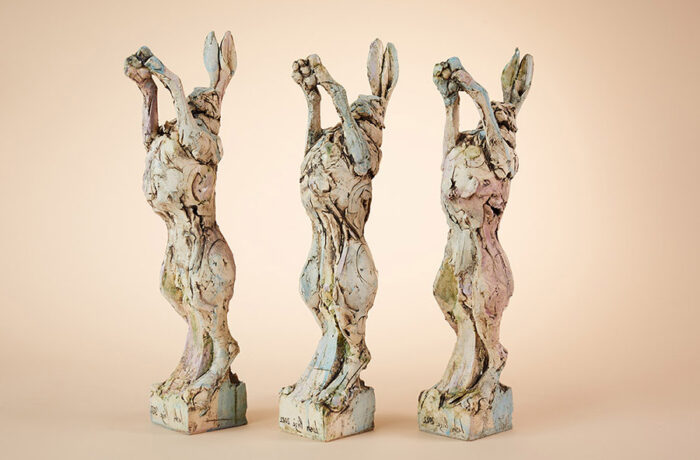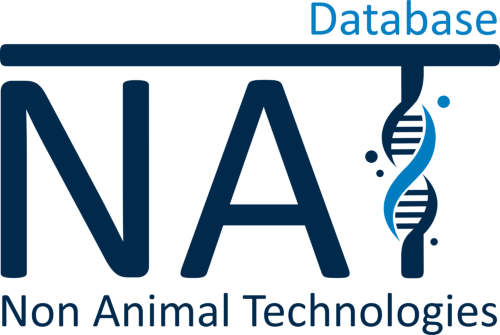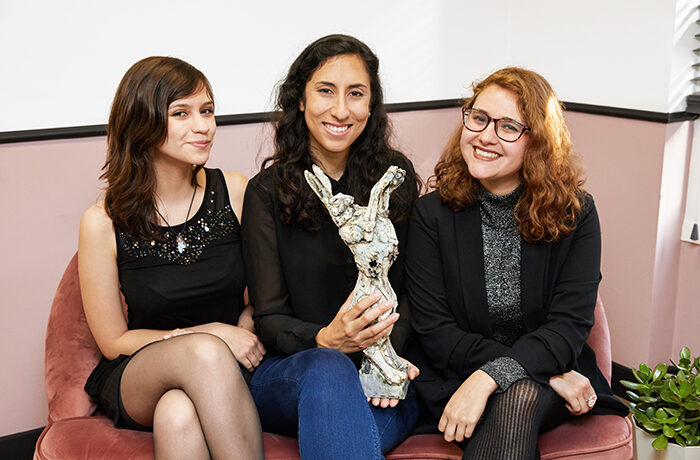Lush Prize nominations – how to get shortlisted

Lush Prize is a biennial fund that supports campaigners and scientists working to end the use of animals in research, testing and education and to promote human-relevant science. There are five categories sharing the £250,000 prize fund as well as three non-financial ‘recognition’ awards.
Nominations for Lush Prize 2026 close on 28 November. If you haven’t submitted your project yet, here are some ‘top tips’ for successful applications.
All nominations are first discussed by a shortlisting panel to check they meet our strict eligibility criteria before passing to our independent panel of judges.
1 Select the prize category that best fits your work
As a campaigner, Public Awareness and Political Advocacy are probably the best fit for your work. Your campaign likely involves both elements, so read the criteria carefully and consider the strengths of your campaign and political work so that you can select the category where you can provide the strongest evidence of your outcomes.
As a scientist, there are three financial prizes:
Science: We prioritise projects that are most likely to lead to practical non-animal approaches which could be accepted by regulators
Young Researcher: For scientists up to 35 years old wanting to progress their work in non-animal research
Training: For training others in non-animal research/testing methods
There are also two non-financial awards for Major Science Collaboration and Health Charity Projects.
Unsure which category best fits your project? Send us an email and we can help you decide.
2 Want to submit in more than one category?
While we don’t prevent an individual or organisation from nominating in more than one category, we generally do not shortlist more than one submission from the same nominee. You may want to submit what you consider the strongest application in one category. However, if you do really want to submit in more than one category, you can. You can also contact us to discuss the options.
3 Carefully note the minimum word limit and use the maximum to full effect
Some questions may provide a minimum and maximum word count for your responses – take note of these carefully!
If you do not meet the minimum word count your submission is unlikely to be shortlisted as there will not be enough information for our panels to fully discuss it.
Use the maximum word count to full effect – providing us with all the relevant information (and missing out the irrelevant information) will make your submission stronger.
You will note that we do not allow attachments (such as annual reports or published papers), except for CVs for Young Researcher applications, so you need to ensure that anything you want us to know is in your responses to the questions.
Sometimes it may feel that the word limit is too short. This is deliberate – we want you to focus on telling us why your project should win a prize, not for our shortlisting/judging panels to have to search amongst thousands of words for the key points.
4 Focus on what you have done in the past two years
Most of the Lush Prize categories (except the Young Researcher Prize) reward you for the work you have done in the past. We want to see what you have already achieved and to give you the funds to continue doing great work.
Generally we ask you to focus on telling us what you have done in the past two years. So, although you may be really proud (and rightly so) of an achievement five years ago, is that really relevant to what you are doing now? If it is, include it and explain why. If it isn’t, don’t! Use that limited space for your answers very carefully.
Impact matters. How do you measure the impact of your work? A campaign leading to legislative changes? Recent media coverage in impactful publications? Peer-reviewed papers or presentations at conferences? Numbers of individuals or organisations you’ve trained who are now using non-animal approaches? Where asked, ensure you provide details and links. If you include social media as an example of impact, tell us why you think this is impactful, don’t just list the number of likes and shares.
5 Are you a scientist who has recently conducted research on animals or published papers based on animal research?
Lush Prize is different to many other prizes in the ‘animal-free research’ field. We are not a 3Rs prize. We focus our work and funds on the complete replacement of animal use, whether of live animals (including invertebrates*), animal tissues and cells**, or materials such as Foetal Calf Serum or animal-derived antibodies.
We recognise that many scientists have used animals in the past, but in your submission we want to see that you have made the move to animal-free research, which is why we have specific questions around this, not only concerning the use of live animals but all animal-derived materials. Be thorough with your responses – if you have used animals in the recent past explain why you no longer do. Similarly, if you are working to phase out or replace animal-derived components (e.g. Foetal Calf Serum or Matrigel) in your lab, please include details.
For publications of research using animals or animal-based materials, tell us about your role in that research and when it was conducted.
We also recognise that not every country has equal resources to non-animal materials and that costs, import restrictions and other factors play a part. We take this into account in our shortlisting and judging, but again it is important that you provide us with all the relevant information.
(* Lush Prize includes invertebrates, unlike directives or legislation which may exclude them from protection under more narrow legal definitions; ** the use of established cell lines of non-human animal origin shall not necessarily be excluded)
6 Be honest!
If you nominate for a Public Awareness or Political Advocacy Prize, we ask whether any other organisations also worked on the campaign, even if you didn’t work directly with them. This is important as in many situations success is a collaborative process and several organisations may have been part of the achievement. Our experienced shortlisting and judging panels often know which organisations worked (individually or collaboratively) on a project, so it helps your submission if you talk about your specific role but also don’t dismiss the work of others.
As a scientist, be honest about any recent use of animals or animal-derived materials. Our shortlisting panel conducts publications reviews, so if you haven’t declared something that we discover through our searches, it may have a negative impact on your nomination. Therefore it is important to declare any and all animal-based publications on which you are included, whether as sole or co-author, and your role in the study. As noted earlier, we are aware that many labs still use animal-derived materials such as Foetal Calf Serum, so use the space provided to explain why you still use these and what you have done to try and find non-animal replacements.
Also be honest about your role as both an individual and as part of a team. If you are a scientist who worked in a team to achieve something but you nominate as an individual, explain why. This certainly does not prevent you from nominating (or winning!) but we are interested to know why you prefer to nominate as an individual.
Extra tips!
(a) Use of AI in your submission
The use of AI in nominations processes is common now. Whilst we would prefer to read about your work in your own words, we will not reject nominations just because they were written with the use of AI tools. Our eligibility criteria sets out a few issues to consider if you do use AI, particularly around its accuracy – you are responsible for the accuracy of your submission, and AI tools are known to be prone to occasional ‘hallucinations’!
(b) What if something major happens after submitting an application?
You may have already submitted your nomination and then something big happens, for example a success with your nominated campaign or science project.
If the nominations process is still open and you have something crucial to add to your submission, contact us to discuss how to make an amendment. If the nominations date has already closed you can contact us but we can’t guarantee that any new information will be added to your submission.
Have any more questions? Send us an email.
We look forward to receiving your nomination.








Spread the word: